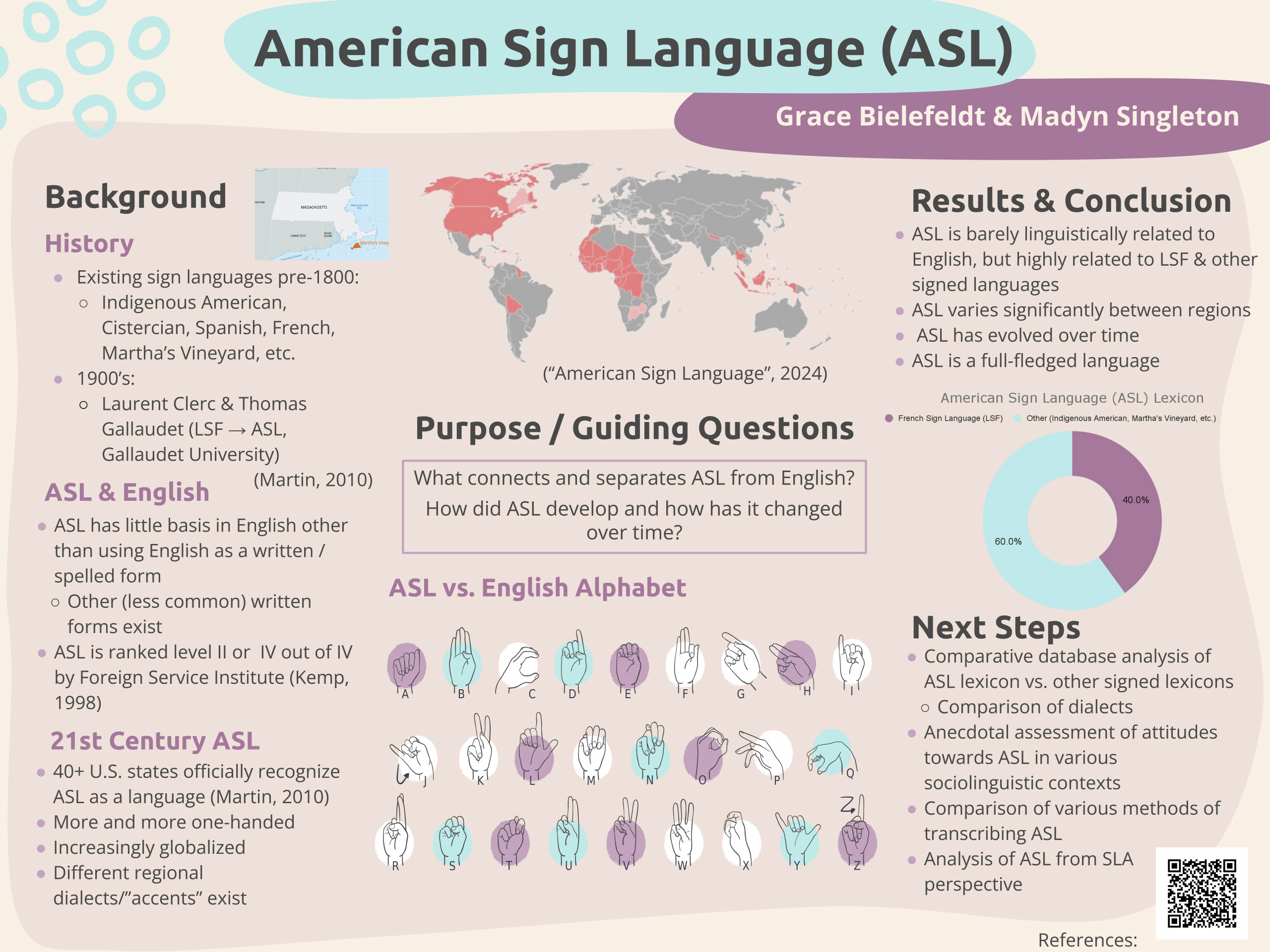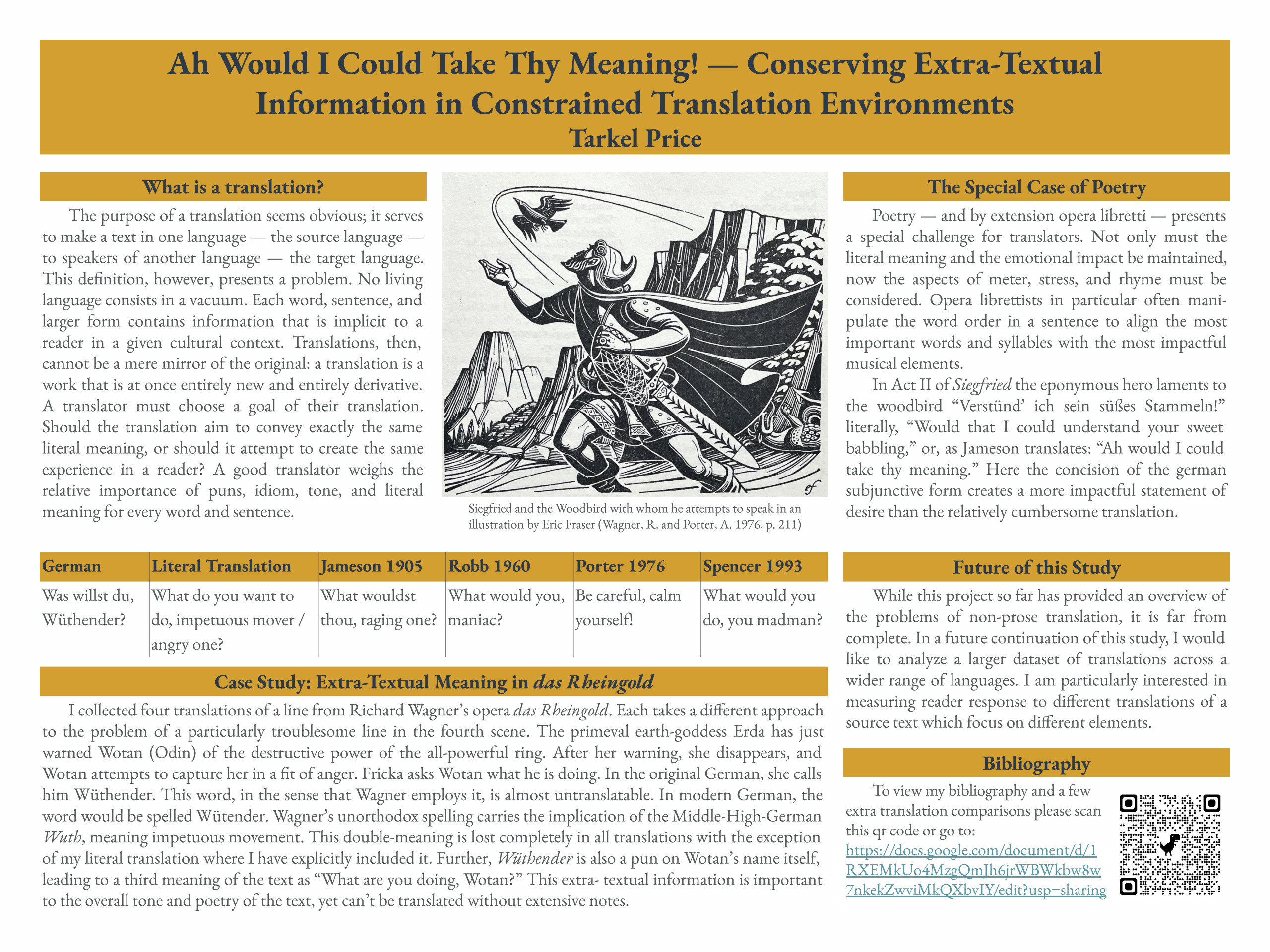OVERVIEW OF THE CONCENTRATION
Linguistics encompasses all areas related to the scientific study of the nature, structure, and function of language. Applied linguistics treats language both as a fundamental human faculty and as a changing social institution. The field of applied linguistics includes the relationship between language and logic, the underlying structures of the brain, social implications of language, language acquisition (including bilingualism and second-language acquisition), psychology of language, philosophy of language, dialects and dialectology, language and literature, the history and development of specific language families, human-machine interaction, artificial intelligence, and global communication and understanding. Learn more about the Intended Learning Outcomes for our concentration.
Course of Study
The Applied Linguistics concentration consists of a minimum of five courses:
For graduation years through 2026
(1) Linguistics 250 (LNGST 250), English Language and Linguistics;
(2) three approved departmental offerings at any level (with the requirement that students take no more than two of these three courses within the same department); and
(3) one approved Level III course. Students may also receive concentration credit through an independent Study, independent research project, or an internship. For more information, contact Jeremy Loebach, Director of Linguistic Studies (loebach@stolaf.edu).
For graduation years 2027 and onward
(1) Linguistics 250 (LNGST 250), English Language and Linguistics;
(2) four approved departmental offerings (with the requirements that students take no more than two of these four courses within the same department and that two of these four courses must be at the 200 or 300 level).
REQUIRED COURSE
Linguistics 250 English Language and Linguistics
Students explore principles and approaches to linguistic analysis based on phonemics, morphology, and syntax as derived from traditional, structural, and generative-transformational models. They also examine aspects of semantics, language acquisition, variation, and change, focusing closely on analytic procedures as they relate to spoken and written English.
LINGUISTIC STUDIES COURSE OFFERINGS
Please click on the following catalog link: https://www.stolaf.edu/catalog/academicprogram/linguistics.html
SPECIAL OPPORTUNITIES
In addition to the courses you may take, you can gain experience in the field and pursue special areas of interest in several ways. Full-time internships may be arranged during Interim. Internship possibilities include working in bilingual education, language immersion, or ESL programs in school; assisting in language research laboratories; and exploring the world of publishing. Internships are valuable for confirming one’s academic interest in Linguistic Studies, learning new skills and gaining paraprofessional field experience (a real asset on the job market).
Independent study and research projects, usually completed during the junior or senior year, allow students to take an idea through the entire research process. In recent years, topics have included the study of American Sign Language, Spanish language immersion programs at the elementary school level, and the translation of psychological tests.
Students may also pursue their study of linguistics through off-campus coursework in conjunction with St. Olaf’s Off-Campus and International Studies programs in locations as diverse as France, Germany, Russia, Spain, Norway, Scotland, England, Tanzania, and the People’s Republic of China.
Student Posters
Below are posters of the top four student research projects in Prof. Vosburg’s LNGST 250 course in the Spring of 2024 (as voted by students). In the course, students get to complete linguistically based research projects of their design. These posters demonstrate well the breadth of interests our students bring to the course, which informs the lenses they use in their study of applied linguistics. Scroll the gallery for more.



